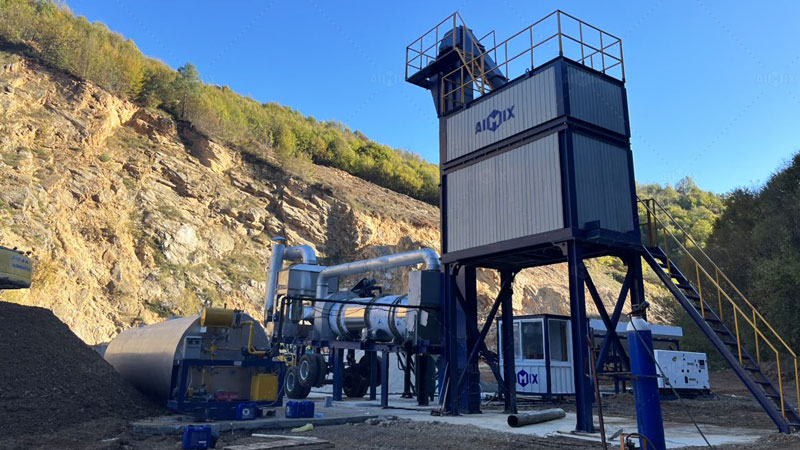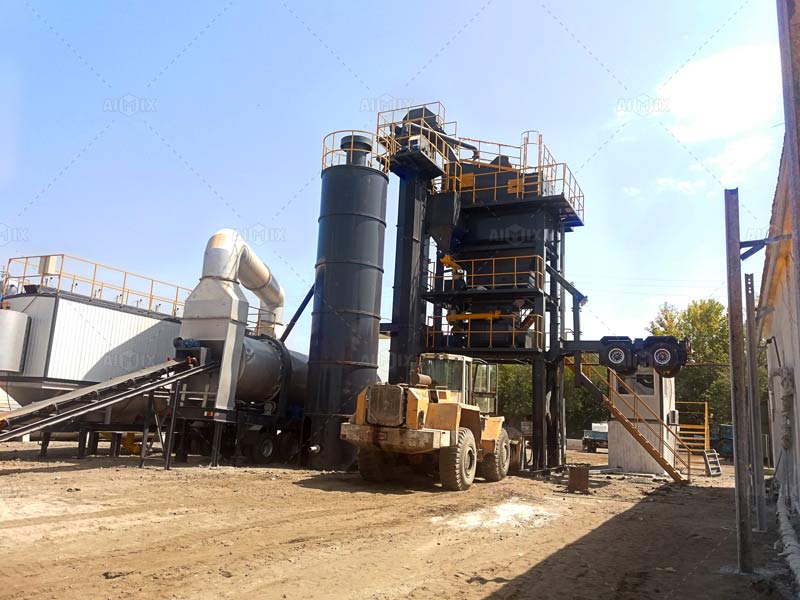1As sustainable infrastructure development becomes a global priority, Latin America is embracing technologies that reduce environmental impact while maintaining construction efficiency. Among these, the mobile asphalt plant stands out as a flexible, efficient, and greener alternative to traditional stationary setups. Designed with precision weighing systems and advanced emission control features, mobile plants are transforming road construction by enabling accurate, eco-conscious asphalt production close to job sites.
Why Mobile Asphalt Plants Are Gaining Ground
In countries like Peru, Colombia, and Chile, construction sites are often located in remote, mountainous, or environmentally sensitive areas. Transporting asphalt mix from centralized plants increases fuel consumption, carbon emissions, and the risk of mix quality degradation. A mobile asphalt plant(planta de asfalto movil), however, can be easily relocated and set up near the job site, reducing logistics challenges and environmental costs.
Mobile asphalt plants offer the same advanced technologies found in stationary units—such as precision weighing, temperature control, and intelligent automation—while adding the benefits of compact design and mobility. This makes them ideal for projects that require both operational efficiency and environmental responsibility.

Efficient Weighing: The Key to Quality and Resource Savings
Advanced Weighing Systems
Modern mobile asphalt plants are equipped with high-accuracy weighing systems for aggregates, bitumen, and filler materials. These systems use load cells and programmable logic controllers (PLCs) to deliver real-time, automatic control of material proportions. In most models, weighing accuracy reaches ±0.5% for aggregates and ±0.25% for bitumen, ensuring a consistent mix that meets strict road construction standards.
This level of precision reduces material waste, improves pavement durability, and supports efficient resource management—critical factors in both public and private projects. Whether producing asphalt for highways or rural access roads, the consistent quality made possible by accurate weighing helps prevent costly rework and maintenance.
Batch Mix vs. Continuous Mix
While some mobile units follow the continuous mixing method, many high-performance setups now include batch mix asphalt plant(planta de asfalto discontinua) configurations. Batch mix systems allow for tighter control over each load of asphalt, ensuring that every batch meets exact specifications before it is released. This makes batch systems particularly well-suited for projects with varied requirements or higher quality standards.
Batch mixing also enables quicker recipe changes, allowing contractors to produce different types of mixes for different road segments—such as base, binder, and surface layers—without stopping production.
Environmental Benefits of Mobile Asphalt Plants
Lower Emissions Through Proximity
One of the most effective ways to reduce environmental impact is to reduce transportation. By operating close to the construction site, mobile plants eliminate the need to haul asphalt mix over long distances. This significantly cuts down on diesel usage and carbon dioxide emissions, especially in regions where road access is limited or winding, such as the Andes or Amazon basin.
Dust and Fume Control
Today’s mobile plants are also designed with integrated dust collection systems, such as baghouse filters, that capture fine particulate matter during aggregate heating and mixing. Additionally, modern burners are engineered for cleaner combustion, reducing smoke, VOCs (volatile organic compounds), and other harmful gases. These features make it easier for contractors to comply with local environmental regulations while maintaining community support for infrastructure projects.
Energy-Efficient Heating
Mobile asphalt plants(planta de aglomerado) now use energy-efficient burners that adapt to real-time temperature data to optimize fuel use. Advanced insulation in drying drums and bitumen tanks further reduces heat loss, minimizing energy consumption over long production periods. These design improvements make mobile plants a competitive choice for contractors who want to balance productivity and sustainability.
Adaptability for Small-Scale and Remote Projects
In addition to their environmental advantages, mobile plants are ideal for projects with lower asphalt demand or constrained budgets. A small type asphalt plant—typically producing 10 to 40 tons per hour—can serve municipal road upgrades, farm-to-market roads, or airport runway repairs in regions where full-scale production is unnecessary.
These compact units require minimal setup time, limited ground preparation, and can be operated by smaller crews with less training. With the addition of intelligent weighing and control systems, even small type asphalt plant models are capable of delivering high-quality, environmentally responsible performance.
Case Example: Sustainable Roadwork in Ecuador
In a recent rural infrastructure program in Ecuador, contractors used a mobile batch mix asphalt plant to produce asphalt for multiple small road sections across the highlands. Thanks to accurate weighing systems and efficient energy use, the project team reported a 25% reduction in fuel consumption and a 15% improvement in mix consistency compared to previous projects using older equipment. The plant’s mobility allowed it to move between job sites without dismantling key components, saving time and reducing the project’s carbon footprint.

Choosing the Right Mobile Asphalt Plant
When evaluating mobile asphalt plants, Latin American contractors and developers should consider the following factors:
- Weighing system accuracy: Critical for high-quality mix and material savings
- Environmental compliance: Dust filters, low-emission burners, and energy efficiency
- Mixing method: Choose between batch or continuous based on project complexity
- Mobility and setup: Consider trailer-mounted or skid-mounted systems for easy relocation
Manufacturers are increasingly offering hybrid solutions that combine the mobility of small plants(planta de asfalto pequeña) with the technological sophistication of larger, stationary systems—bringing greater value to contractors facing diverse and demanding job conditions.
Conclusion: Smart, Green, and On the Move
The demand for efficient, eco-friendly road construction in Latin America is growing, and the mobile asphalt plant is meeting this challenge head-on. With precise weighing, adaptable production systems, and a significantly reduced environmental footprint, mobile plants offer a practical, sustainable solution for governments and contractors alike.
Whether it’s a high-capacity batch mix asphalt plant for a national highway or a small type asphalt plant serving a local municipality, mobile asphalt production is reshaping how roads are built—bringing accuracy and environmental consciousness to even the most remote parts of the region.
